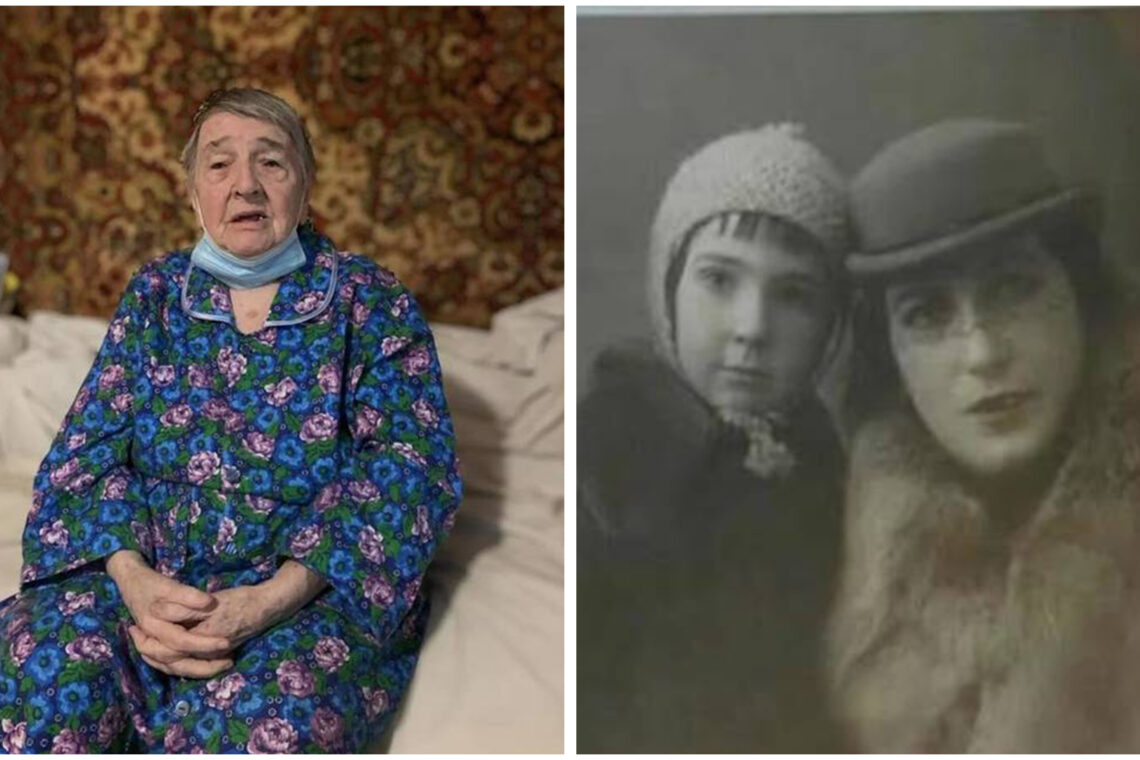
In a poignant twist of fate, the life of Vanda Semyonovna Obiedkova came to a heart-wrenching end amid the chaos of war. This 91-year-old Jewish-Ukrainian, a resident of Mariupol, faced unimaginable hardships throughout her life, surviving the horrors of the Holocaust only to succumb to the devastation wrought by the recent Russian invasion of her hometown.
Obiedkova’s life story is steeped in tragedy and resilience. Born into a Jewish family, she lived through one of history’s darkest chapters when Nazi forces occupied Mariupol during World War II. In October 1941, as the Nazis implemented their brutal campaign against the Jewish population, her family faced catastrophic loss. On October 20, in a harrowing act of violence, thousands of Jews in Mariupol, including many members of Obiedkova’s family, were executed. Vanda, then just a child of ten, narrowly escaped the fate that befell her loved ones. Through a combination of quick thinking and luck, she was able to convince her captors that she was Greek, allowing her to avoid the immediate slaughter.
For the next two years, she lived in hiding with her father, sheltered within the confines of a hospital, as they awaited the liberation of their city. This experience marked her indelibly, shaping her perspective and relationship with Mariupol. When the city was finally liberated in 1943, Obiedkova returned to a place she loved, determined to rebuild her life.
Vanda’s resilience shone through in her later years. In 1954, she married and continued to embrace life in Mariupol, where she raised her daughter, Larissa. Over the decades, she became a cherished figure in her community, known for her warmth and joy. However, the tranquility of her later years was shattered when the conflict reignited, culminating in the Russian military’s aggressive invasion of Ukraine that began on February 24, 2022.
As the bombs fell and Mariupol transformed into a battleground, the city’s residents faced unimaginable hardships. Vanda and her family were compelled to seek refuge in the basement of a heating-supply store as the situation deteriorated. The relentless bombardment brought with it severe shortages of food, water, and basic necessities. Larissa recounted the terror they endured during this time, describing the constant threat of Russian snipers guarding the few remaining water sources. Each trip outside was fraught with danger, as they risked their lives merely to obtain the essentials for survival.
In her final days, Obiedkova reflected on the horrors she had witnessed throughout her long life. Despite her previous experiences during World War II, she remarked on the severity of the current conflict, expressing disbelief at the destruction unfolding before her. “I don’t remember anything like this during the Great Patriotic War,” she lamented, highlighting the pain of reliving traumatic memories as history seemed to repeat itself.
As the family huddled together in their cold, dark shelter, Vanda’s health rapidly declined. The frigid conditions and lack of adequate food took a toll on her frail body, and she became increasingly weak. Larissa remained by her side, doing her best to comfort her mother in those desperate moments. Tragically, on April 4, 2022, Vanda Semyonovna Obiedkova passed away, surrounded by the remnants of a life filled with struggle and perseverance.
The news of her passing sent shockwaves through the small Jewish community in Mariupol. With only a few Jewish residents remaining in the city, Obiedkova was a beloved figure whose legacy endured through the stories shared by those who knew her. Rabbi Mendel Cohen, the town’s only rabbi, expressed profound grief over the loss of such a remarkable woman. He poignantly described Mariupol as having turned into a cemetery, a stark metaphor for the deep sense of loss felt by its inhabitants.
Rabbi Cohen had been working tirelessly to help evacuate members of his community, but the chaos of war made it impossible for him to reach Obiedkova and her family in time. Nevertheless, he succeeded in ensuring the safety of Larissa and her family, providing some solace in the face of overwhelming tragedy. Larissa spoke out about her mother’s heartbreaking death, emphasizing that Vanda did not deserve such a fate after surviving so many years of suffering.
Vanda’s story is a testament to the resilience of the human spirit in the face of adversity. Her life spanned a time of tremendous upheaval and change, yet she remained steadfastly devoted to her home and community. As Mariupol once again finds itself at the center of conflict, the memory of Vanda Semyonovna Obiedkova serves as a somber reminder of the toll war takes on individuals and communities.
In remembering Vanda, it is essential to honor the stories of those who lived through such trials, ensuring that their experiences are never forgotten. Her life reflects the strength of those who endured the unthinkable, while also illuminating the ongoing struggles faced by civilians caught in the crossfire of war. The tragic end of Vanda Semyonovna Obiedkova stands as a haunting echo of the past, urging future generations to seek peace and understanding in a world that is all too often marked by conflict and division.